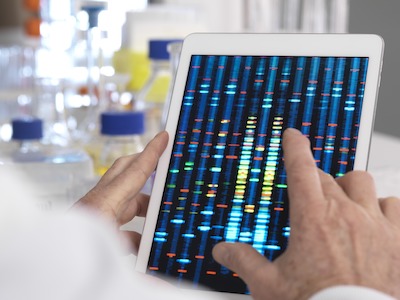For those struggling with major depressive disorder (MDD), antidepressants can often be a solid first-line treatment. They help to increase the availability of certain chemicals in the brain, such as serotonin, that control mood and stress.
But these medications aren’t a one-size-fits-all solution.
Only one-third of those with MDD achieve remission with their first antidepressant, and up to 33% don’t show any improvement despite trying multiple antidepressants.
For individuals who are considered to be treatment-resistant, the prognosis can be dangerous. Without help, symptoms remain and can worsen, reducing the person’s quality of life and increasing thoughts of (and attempts at) self-harm or suicide.
That’s where pharmacogenetics can help.
Pharmacogenetic testing assesses an individual’s genetic makeup to identify mutations and variations that can interfere with the way medications are processed and also how the body processes certain medications. Pharmacogenetics combines the science behind how certain drugs react in your body (pharmacology) with information about how your genes, in turn impact that medication.
